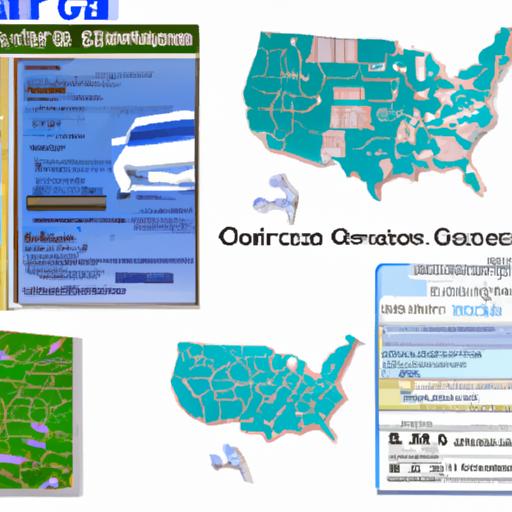Introduction
When it comes to driving in North Carolina, having the right car insurance coverage is not only important but also mandatory. Whether you are a new driver or a long-time resident, understanding the ins and outs of car insurance in North Carolina is crucial to protect yourself and your vehicle. In this comprehensive guide, we will walk you through the essential information you need to know about North Carolina car insurance, including requirements, factors affecting rates, and tips for finding affordable coverage.

Understanding North Carolina Car Insurance Requirements
In North Carolina, drivers are legally required to carry a minimum level of liability coverage. This coverage helps cover the costs associated with injuries and property damage you may cause to others in an accident. The state-mandated minimum liability limits are as follows:
- Bodily Injury Liability: $30,000 per person / $60,000 per accident
- Property Damage Liability: $25,000 per accident
Additionally, North Carolina law also requires drivers to carry uninsured/underinsured motorist coverage (UM/UIM). This coverage protects you and your passengers if you are involved in an accident with a driver who does not have insurance or has insufficient coverage to fully compensate you for your injuries.
Apart from the mandatory coverage, there are other optional coverage types available in North Carolina, such as collision coverage, comprehensive coverage, medical payments coverage, and more. These optional coverages provide additional protection and peace of mind, but keep in mind that they will increase your premium.

Factors Affecting Car Insurance Rates in North Carolina
Several factors come into play when determining car insurance rates in North Carolina. It’s important to understand these factors as they can greatly influence the cost of your premiums. Here are some key factors that insurance companies consider:
- Age, Gender, and Marital Status: Younger drivers, especially teens, often face higher rates due to their lack of driving experience. Gender and marital status can also impact rates, as statistics show that certain demographics tend to have higher accident risks.
- Driving Record and Claims History: A clean driving record with no accidents or moving violations will generally lead to lower premiums. On the other hand, a history of accidents or traffic violations can result in higher rates.
- Vehicle Type and Usage: The make, model, and year of your vehicle can affect your insurance rates. Expensive or high-performance cars often come with higher premiums. Insurance companies also consider how you use your vehicle, whether it’s for business, pleasure, or commuting.
- Credit Score and Insurance Score: In North Carolina, insurance companies can use your credit score to determine your insurance rates. Maintaining good credit can help you secure lower premiums. Additionally, insurance scores, which evaluate your insurance risk based on various factors, may also be taken into account.
- Location in North Carolina: Where you live can impact your car insurance rates. Urban areas with higher population density and more traffic tend to have higher rates compared to rural areas.

Tips for Finding Affordable Car Insurance in North Carolina
While car insurance is a necessary expense, there are ways to find affordable coverage without compromising on quality. Here are some tips to help you save on your car insurance premiums in North Carolina:
- Comparison Shopping and Obtaining Multiple Quotes: Don’t settle for the first quote you receive. Take the time to compare rates from different insurance providers to ensure you are getting the best deal. Online comparison tools can help simplify this process.
- Utilizing Discounts and Cost-Saving Strategies: Insurance companies offer various discounts that can significantly lower your premium. Look for discounts such as safe driver discounts, multi-policy discounts, good student discounts, and more. Additionally, consider bundling your car insurance with other policies, like homeowners or renters insurance, to save even more.
- Considering Higher Deductibles and Tailored Coverage Options: Opting for a higher deductible can help reduce your premium. However, make sure you choose a deductible that you can comfortably afford in case of an accident. Additionally, consider tailoring your coverage to your specific needs, as paying for unnecessary coverage can increase your premium.
- Maintaining a Good Driving Record and Credit Score: Safe driving habits not only keep you and others safe on the road but can also help you secure lower insurance rates. Similarly, maintaining a good credit score can positively impact your premiums, so make sure to pay bills on time and keep your credit utilization low.
- Evaluating Customer Reviews and Ratings: Before finalizing your decision, take the time to research customer reviews and ratings of insurance providers in North Carolina. This can give you insights into their customer service, claims process, and overall satisfaction levels.
Conclusion
In conclusion, having the right car insurance coverage is essential for North Carolina residents. Understanding the state’s car insurance requirements, along with the factors that affect insurance rates, can help you navigate the process more effectively. By following the tips provided, such as comparison shopping, utilizing discounts, and maintaining a good driving record, you can find affordable car insurance in North Carolina that meets your needs.
Remember, Draw Mingle is here to assist you throughout your car insurance journey. Visit our website for more information and to get started on finding the perfect car insurance coverage for your needs.
Disclaimer: The information provided in this article is for informational purposes only and should not be considered as legal or financial advice. It is always recommended to consult with a qualified insurance professional for personalized guidance.
